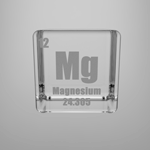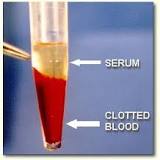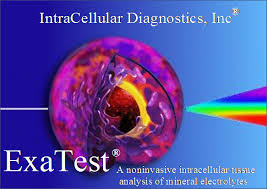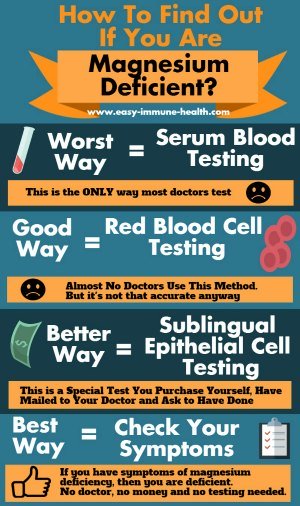 How many of you have gone to the doctor and been told you should have a Magnesium (Mg) deficiency test? Not many I bet.
How many of you have gone to the doctor and been told you should have a Magnesium (Mg) deficiency test? Not many I bet.
So out of those of you that’s had a test, how many were given the Total Serum Mg Test? All of you I suspect.
And of those of you who had the serum test, how many of you were found to be Mg deficient? One, two, none?
So, you’re not Mg deficient, the test says so. What else could it be. Perhaps you are..uhm..calcium deficient. There’s a couple of clinical tests for that and if you are unfortunate enough to be one of those that reacts to these tests, your doctor could come to the conclusion that you are in fact calcium deficient.
A clinical test
So lets look at the common Mg testing procedures in the UK and the US. There are a number of tests that can be used for Mg deficiency and 2 common clinical tests that can be done in the doctor’s surgery. The problem with these clinical tests is they indicate either a Ca or Mg deficiency. Because the tests cannot distinguish between which mineral is deficient and Mg deficiency is deemed to be rare , if the test is positive, it is Ca deficiency that will be presumed and a suitable supplement or diet plan prescribed. As a result, a Mg deficiency, which is more likely to be the case, is overlooked, exacerbated and depleted even lower, causing more problems and symptoms.
, if the test is positive, it is Ca deficiency that will be presumed and a suitable supplement or diet plan prescribed. As a result, a Mg deficiency, which is more likely to be the case, is overlooked, exacerbated and depleted even lower, causing more problems and symptoms.
For those interested, the two clinical tests are
- Chvostek’s sign which is a twitching of facial muscles as a response to tapping a facial nerve in front of the ear.
- Trousseau’s sign which causes spasm in hand muscles after applying a blood pressure cuff to the forearm below the elbow for 3 minutes, at a level above systolic pressure.
The totally useless total serum Mg test
This is the most commonly used Mg test in the UK and the US. Unfortunately, it is next to useless and invariably gives a false positive result.
 It’s no wonder that most doctors think it is very rare to be Mg deficient. They get this duff information from the results of serum tests. The tests comes back normal and patients’ records are updated to reflect this result.
It’s no wonder that most doctors think it is very rare to be Mg deficient. They get this duff information from the results of serum tests. The tests comes back normal and patients’ records are updated to reflect this result.
This is what happens when dogma and an inability to change, encumbers the medical profession, making a profound difference to a patient’s diagnosis! This mis-diagnosis could cause incalculable distress and misery for a patient that may have a simple Mg deficiency. So patients are told that Mg levels are normal and they dismiss the fact that a Mg deficiency could be the cause of their condition.
So why is this?
Less than 1% of our body’s total Mg can be measured in blood serum. Most of our Mg is found in bones – around 60% and inside muscle and other cells – around 40%. If magnesium drops in the extracellular fluids, there’s a danger of a heart event. Thus, the body makes sure that the amount of Mg in blood fluids is stable at all times, even when bodywide levels are low. This means, even if you are deficient in this mineral, your body will keep your blood serum magnesium level normal. So the antiquated blood serum test has no value in showing your real Mg levels. In fact, it is positively dangerous because it gives false information and consequently the wrong diagnosis can result, with the wrong treatment and possible improper use of prescription drugs.
 The RBC (red blood cell) test
The RBC (red blood cell) test
Every cell in our body contains Mg and that includes red blood cells. About 40% of Mg is found in our cells so using red blood cells is deemed to be a more accurate measuring procedure. Even so, it’s still not testing the whole of the body’s Mg levels. Despite this not being an ideal method, it is marginally better than the serum test. Why the rbc test is not done in favour of the serum test, is a mystery. By the way, you can request a test from RequestATest.com if you want to get yourself tested, but don’t rely too much on the result!
Educate your doctor?
Your doctor could arrange a rbc test for you if you can convince him of the folly of a serum test. This could be a tricky conversation as many doctors seem to get tetchy if questioned or informed of something they don’t know already. Many patients are nervous about questioning their doctor but this is your health and you have a right to query your treatment and any aspect of your diagnosis. Some doctors though, are grateful for the facts and are genuinly pleased when patients take an interest in their own health.
The EXATest
The third test I want to talk about is the EXATest. This is a test devised by IntraCellular Diagnostics and is used to identify certain minerals within a cell. The test is very expensive so check your insurance or Medicare and see if they cover it.
 How it works
How it works
This test uses cells scraped from the inside of your mouth. Not in the usual place like for DNA testing ie. the inside of the cheek, but rather from under the tongue close to the bottom teeth. It is called a ‘buccal cell smear test’. Sampling kits are sent to your doctor’s surgery and he then takes a smear using a wooden spatula. It takes no longer than a minute. The scraping is carefully placed onto a microscope slide, left to dry and sent back to the EXATest company. The problem with the EXATest is not many doctor’s even know about it, let alone offer it.
The serum versus the EXATest
Quite by accident, I came across a site about AF (atrial fibrillation). It is run by Travis who suffers from AF. He already knows about the benefits of Mg and that most AFibbers are deficient and asked his doctor for a test, done in early 2013. The test result was normal. He then returned to be tested again in early 2015. The test came back normal, again.
 He had heard of the EXATest in 2014 and decided to get it done. After much searching, he found a naturopath that offered the test. The total fee, was a little over $700 but I understand that the cost has come down markedly since then. The result of his test, done just two months after the 2nd serum test, showed him to be Mg deficient, well below the normal range, despite the serum test showing twice that he was in the middle of the normal range.
He had heard of the EXATest in 2014 and decided to get it done. After much searching, he found a naturopath that offered the test. The total fee, was a little over $700 but I understand that the cost has come down markedly since then. The result of his test, done just two months after the 2nd serum test, showed him to be Mg deficient, well below the normal range, despite the serum test showing twice that he was in the middle of the normal range.
Other tests?
There are a couple more tests that can be done ie. The Challenge Test and the Blood Ionized Mg Test but the challenge test is inconvenient and needs constant monitoring and the ionizing test is limited to the inventors, the Alturas’ laboratory and for research purposes, at the present time.
So what’s the answer?
Are these false positive results of the serum test the reason why the medical profession think this deficiency is rare? Could it be that physicians are so used to the same old, same old that they are missing something vital to the health of us all? Is this lack of knowledge actually compromising accurate diagnoses and treatments?
 In my mind, it would be better not to test at all and just give the patient some good quality Mg. Why is the medical profession not listening to the research that has proven that a large majority of the population is Mg deficient. After all it is not a drug, it is a natural mineral that we all need; us, all other animals and all plant life. Even our farm animals are treated better than us with respect to Mg. Ever heard of ‘grass tetany’?
In my mind, it would be better not to test at all and just give the patient some good quality Mg. Why is the medical profession not listening to the research that has proven that a large majority of the population is Mg deficient. After all it is not a drug, it is a natural mineral that we all need; us, all other animals and all plant life. Even our farm animals are treated better than us with respect to Mg. Ever heard of ‘grass tetany’?
Why are we not informed?
If the whole population was informed about the indispensable need for Mg it could alleviate a plethora of symptoms, illnesses and cardiovascular problems! It could also save tax payers lives, tax payers money and tax payers misery!
How would you feel without it?
Here are just a few symptoms of Mg deficiency. Remember, everyone is different and each of us will suffer different symptoms in varying degrees of severity. All the conditions listed below have been endured and tolerated by countless sufferers in varying degrees over decades. Mg is vital for recovery from any illness and condition and guards against further disease. The majority of the conditions listed below are not induced by genetics.
 ADHD, anxiety, arrhythmia, asthma, atherosclerosis, atrial fibrillation, brain fog, chronic fatigue syndrome, confusion, constipation, cystitis, depression, diabetes, fibrositis, fibromyalgia, headaches, heart disease, high blood pressure, hyperactivity, hypoglycemia, insomnia, irritable bowel syndrome, kidney disease, liver disease, memory loss, migraines, mitral valve prolapse, muscle spasms, muscle weakness, nerve problems, numb hands and feet, osteoporosis, polycystic ovarian disease, preeclampsia, raynaud’s syndrome, restless legs syndrome, shortness of breath, seizures, stroke, syndrome X, tooth decay, tremor, twitches and tics, vertigo.
ADHD, anxiety, arrhythmia, asthma, atherosclerosis, atrial fibrillation, brain fog, chronic fatigue syndrome, confusion, constipation, cystitis, depression, diabetes, fibrositis, fibromyalgia, headaches, heart disease, high blood pressure, hyperactivity, hypoglycemia, insomnia, irritable bowel syndrome, kidney disease, liver disease, memory loss, migraines, mitral valve prolapse, muscle spasms, muscle weakness, nerve problems, numb hands and feet, osteoporosis, polycystic ovarian disease, preeclampsia, raynaud’s syndrome, restless legs syndrome, shortness of breath, seizures, stroke, syndrome X, tooth decay, tremor, twitches and tics, vertigo.
Perhaps it’s because…
Well, there’s one big drawback with using Mg. It won’t help Big Pharma’s coffers!! Businesses are not interested in a product that doesn’t make money and Mg is a cheap mineral that can’t be patented. Profits will be in jeopardy if patients start getting well and recovering from diseases. If you think Big Pharma’s prime concern is the welfare of its paying customers, think again. Money comes first! Therefore, Mg will not be in widespread use anytime soon from those medics controlled by the pharmaceutical industry.
 Take control
Take control
There’s only one answer. Take control. Do your own research. A good start would be replete your body with Mg.